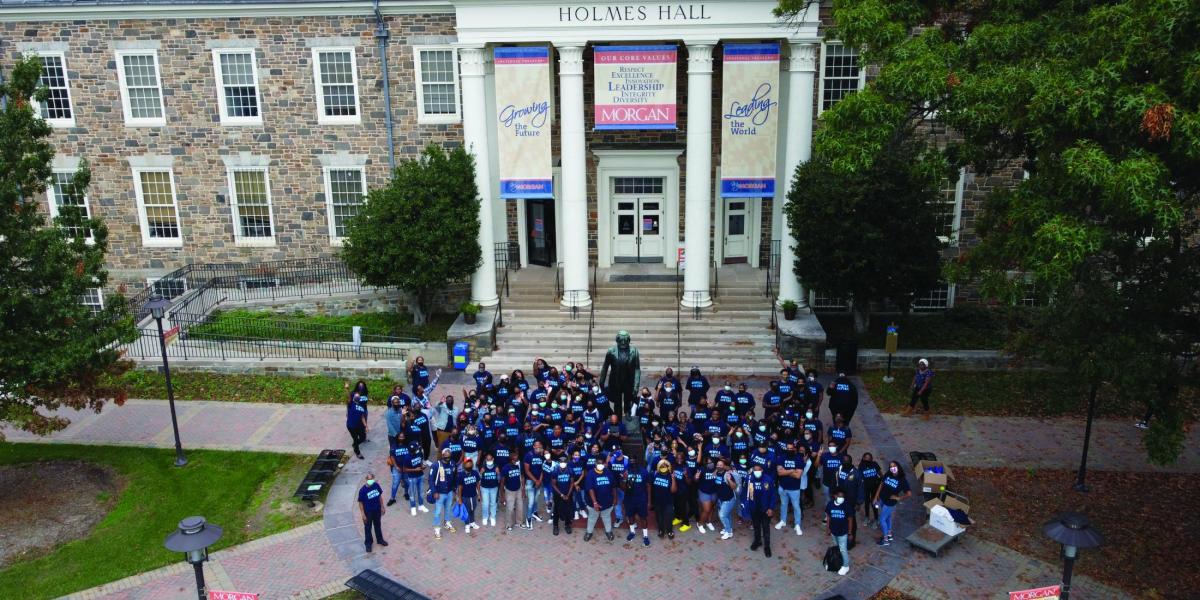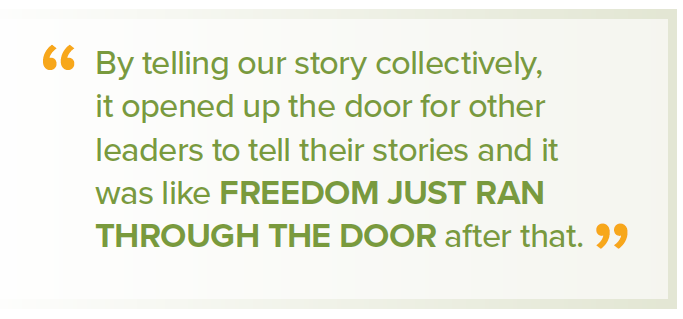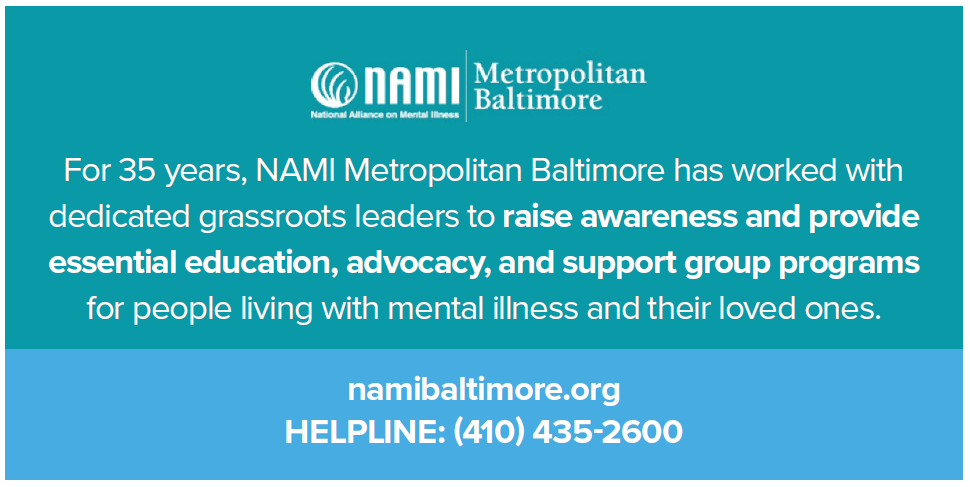Partner Content
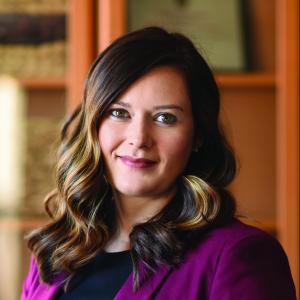
For almost 40 years, National Alliance on Mental Illness Metropolitan Baltimore (NAMI Metro) has been dedicated to advocacy, education, support and eradicating stigma so that all individuals and families affected by mental illness can build better lives.
Never before has our work been more relevant. The coronavirus pandemic wrought unemployment, isolation and disruption. It increased conditions such as anxiety and depression. The need for effective resources for those living with these conditions has never been greater and with that need comes an incredible opportunity.
Until recently, those living with mental health conditions often struggled in private. Today we have a greater awareness that our mental health is nothing to hide. Now is the time to make the most of this groundswell of compassionate understanding. Let’s break down stigma. Let’s talk about our mental health. We have the tools to provide those in need with the resources required to live fulfilled, productive lives.
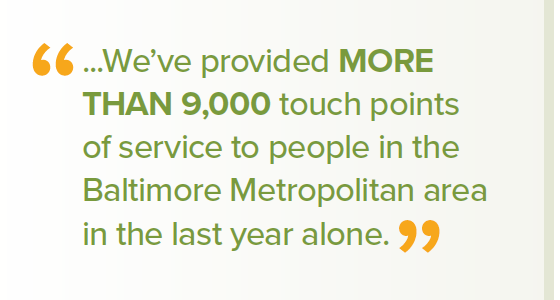 A hallmark of NAMI Metro is our peer-led support network. Our volunteers bravely share their stories to help others. As the area leader for mental health awareness and education we’ve provided 9,000 touch points of service to people in the Baltimore Metropolitan area in the last year alone. While we work with individuals and their families, our mission includes outreach and training with some of the most influential people in businesses, colleges and universities, and emergency services.
A hallmark of NAMI Metro is our peer-led support network. Our volunteers bravely share their stories to help others. As the area leader for mental health awareness and education we’ve provided 9,000 touch points of service to people in the Baltimore Metropolitan area in the last year alone. While we work with individuals and their families, our mission includes outreach and training with some of the most influential people in businesses, colleges and universities, and emergency services.
Whether our work brings us to a classroom or a corporate boardroom, NAMI Metro and our many community partners are committed to removing the stigma of mental illness. We are proud to share in these pages just a few stories of how our work is building healthy lives for those living with a mental health condition and our community as a whole.
Let’s raise our voices,

Kerry Graves
Executive Director, NAMI Metropolitan Baltimore
I WILL LISTEN
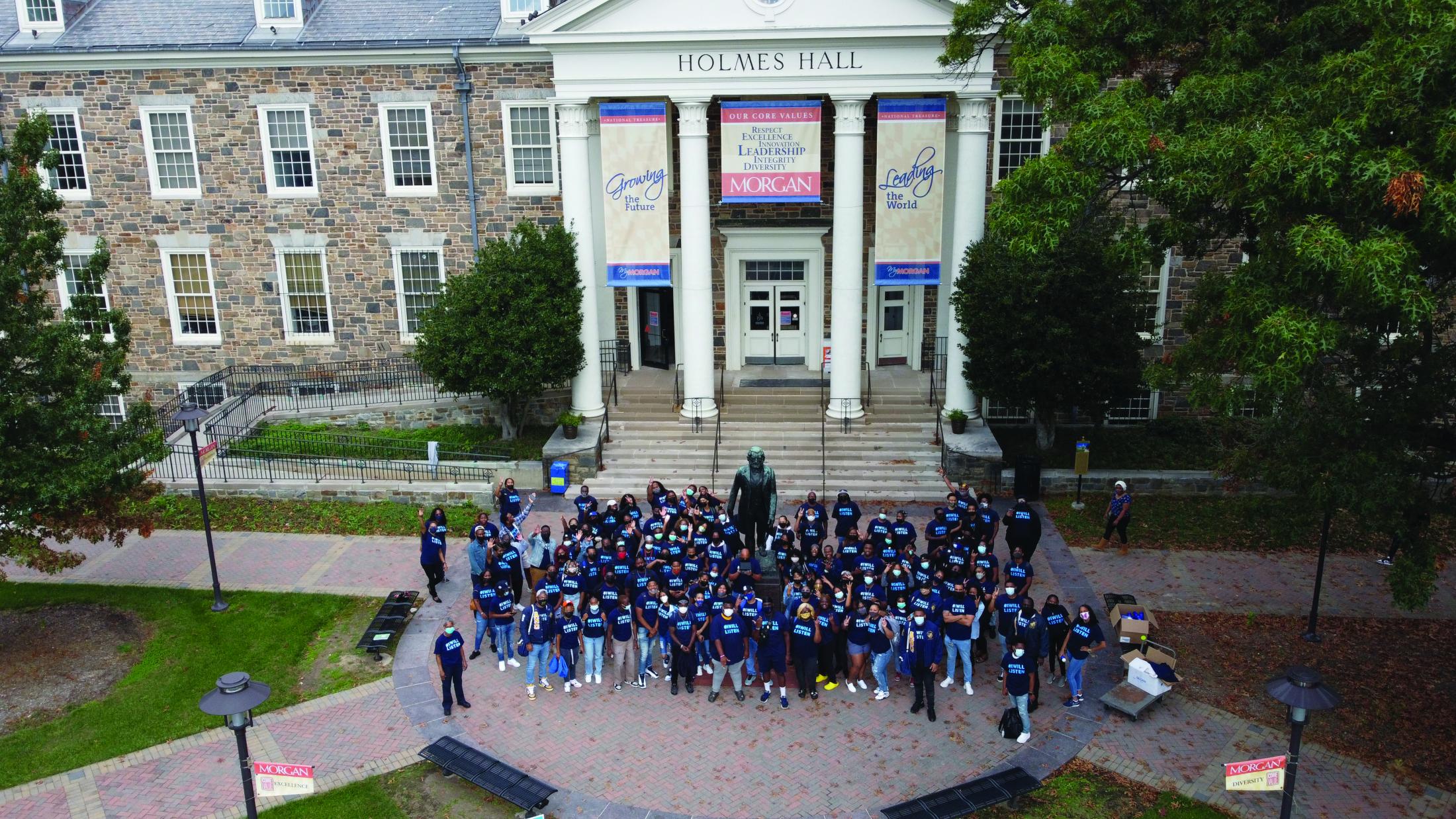
David K. Wilson
PRESIDENT OF MORGAN STATE UNIVERSITY
➜ College is a time of critical development for young adults. It’s a time of important milestones that can also be deeply stressful. Studies show anxiety and depression are on the rise among college students and suicide remains the leading cause of death on campuses. Seventy-five percent of mental health conditions develop by age 24.
Understanding the importance of student mental health, Morgan State University allied with NAMI Metro four years ago to create campus-wide programs to destigmatize mental illness and promote wellness. As part of that commitment, Morgan participates in NAMI Metro’s “I Will Listen” program, a weeklong campaign to engage college students in conversation about mental health. The 2021 initiative included a chapel service, an open mic night, and a final “day without headphones” where everyone on campus was encouraged to wear “I Will Listen” t-shirts.
The 2021 initiative included a chapel service, an open mic night, and a final “day without headphones” where everyone on campus was encouraged to wear “I Will Listen” t-shirts.
“We’re making a statement to our students that we’re here to listen and share your concerns,” says Danny Molock, PhD, interim coordinator for student life and development.
The pandemic makes this work more relevant than ever, explains David K. Wilson, president of Morgan State University.
“Covid has exacerbated the normal mental and psychological challenges that we see on our campus, as it has on college campuses across the nation,” he says. “But it is further exacerbated here at Morgan because so many of our students come from communities that have been disproportionately impacted by Covid.”
Wilson created a mental health task force to engage every aspect of the university in support of mental health. The university is proactive in its programs, bringing therapeutic pets to campus at exam time, sponsoring outdoor “Yoga on the Yard,” to promote relaxation, physical wellness and a sense of community, and offering depression screening.
Importantly, Wilson led by example, asking the counseling center to give a presentation on self-care and stress management to the university’s leadership team during the worst of the pandemic shutdown.
“It’s important for us in leadership to model this and we realize that we, too, need self-care,” says Wilson.
Morgan’s “I Will Listen” week attracted record attendance in 2021. Molock says they’re expanding into more collaborations with NAMI Metro, including a walk for mental health in the spring.
“This generation of students is more willing to share and more willing to listen,” he continues. “They want to be advocates in support of one another.”
COMPASSIONATE response
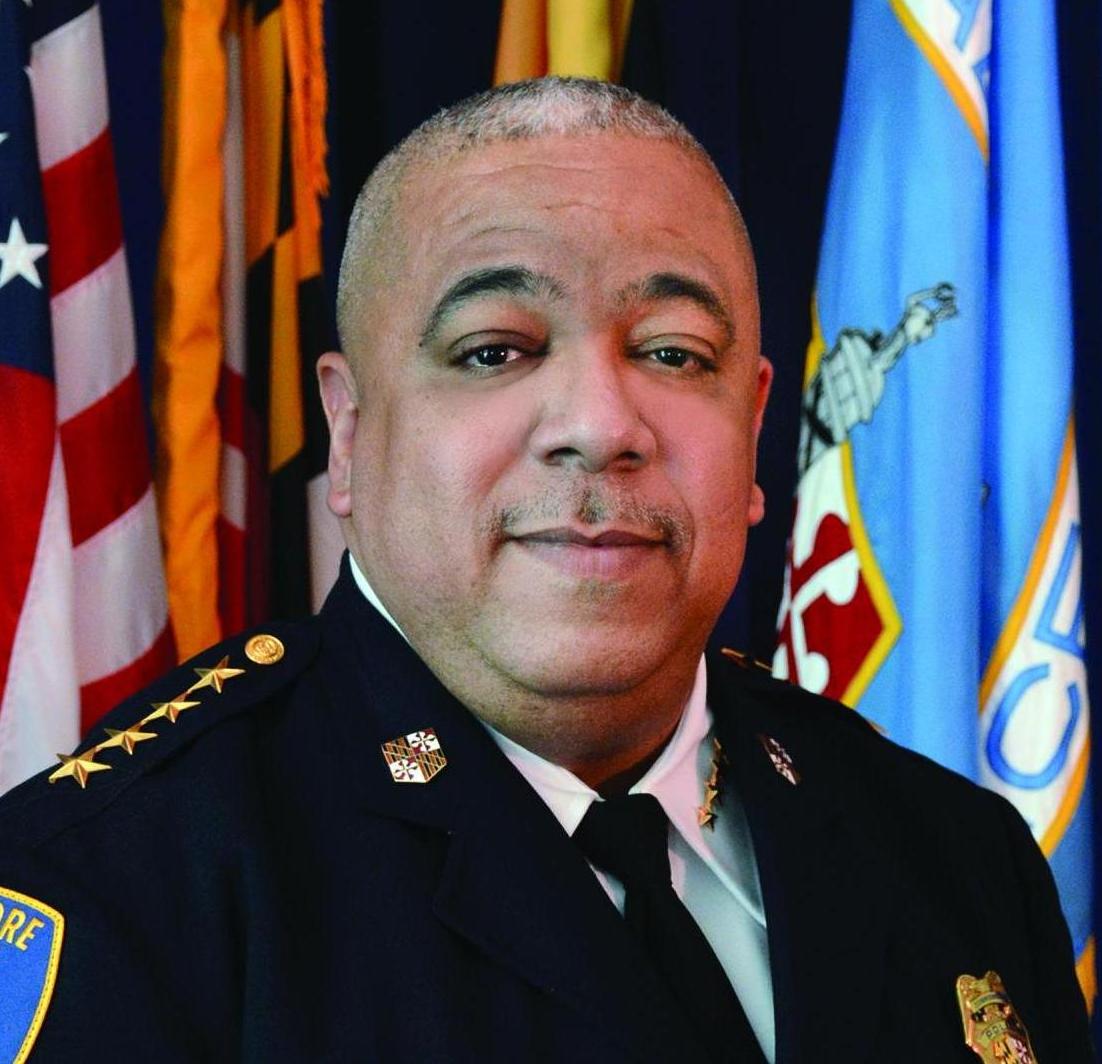
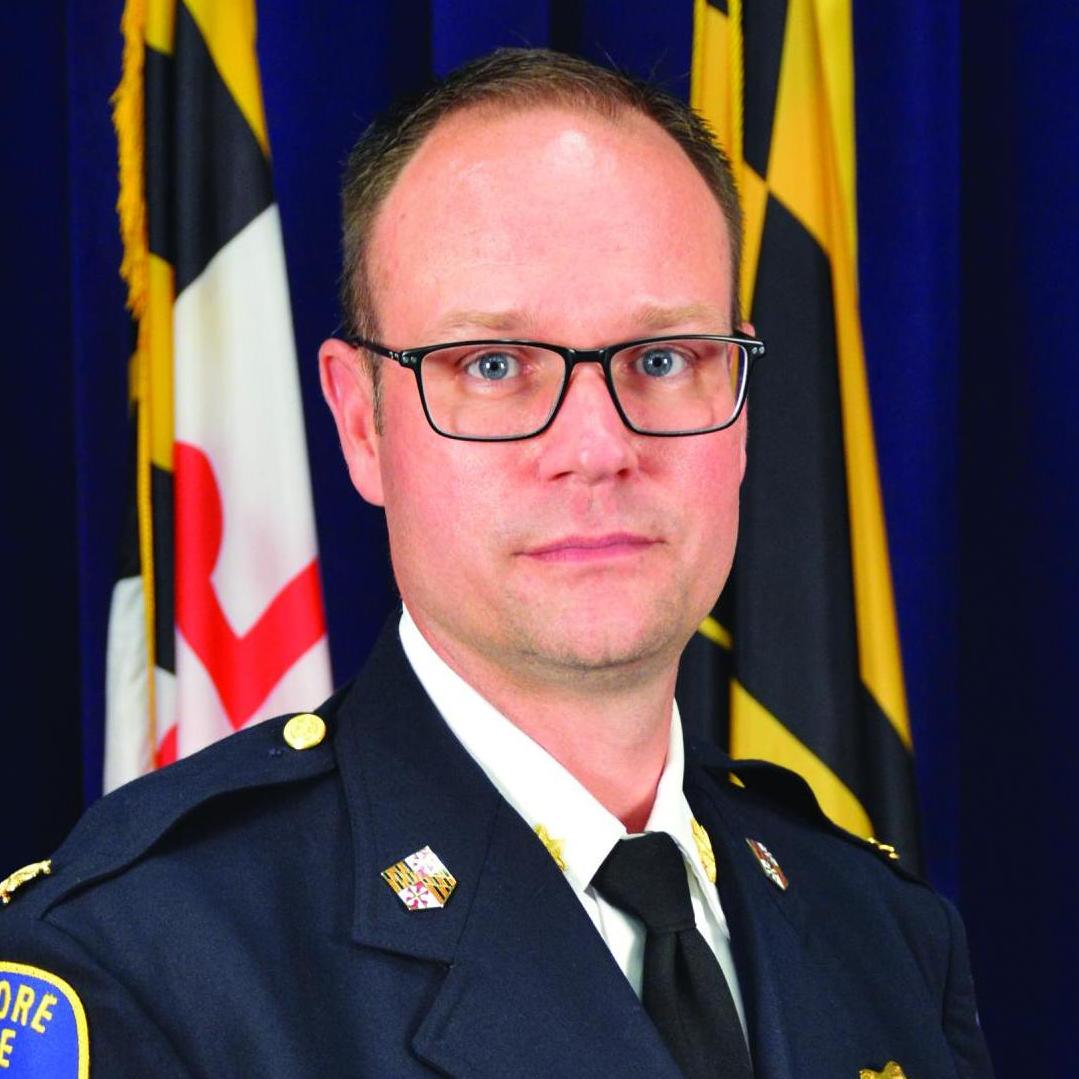
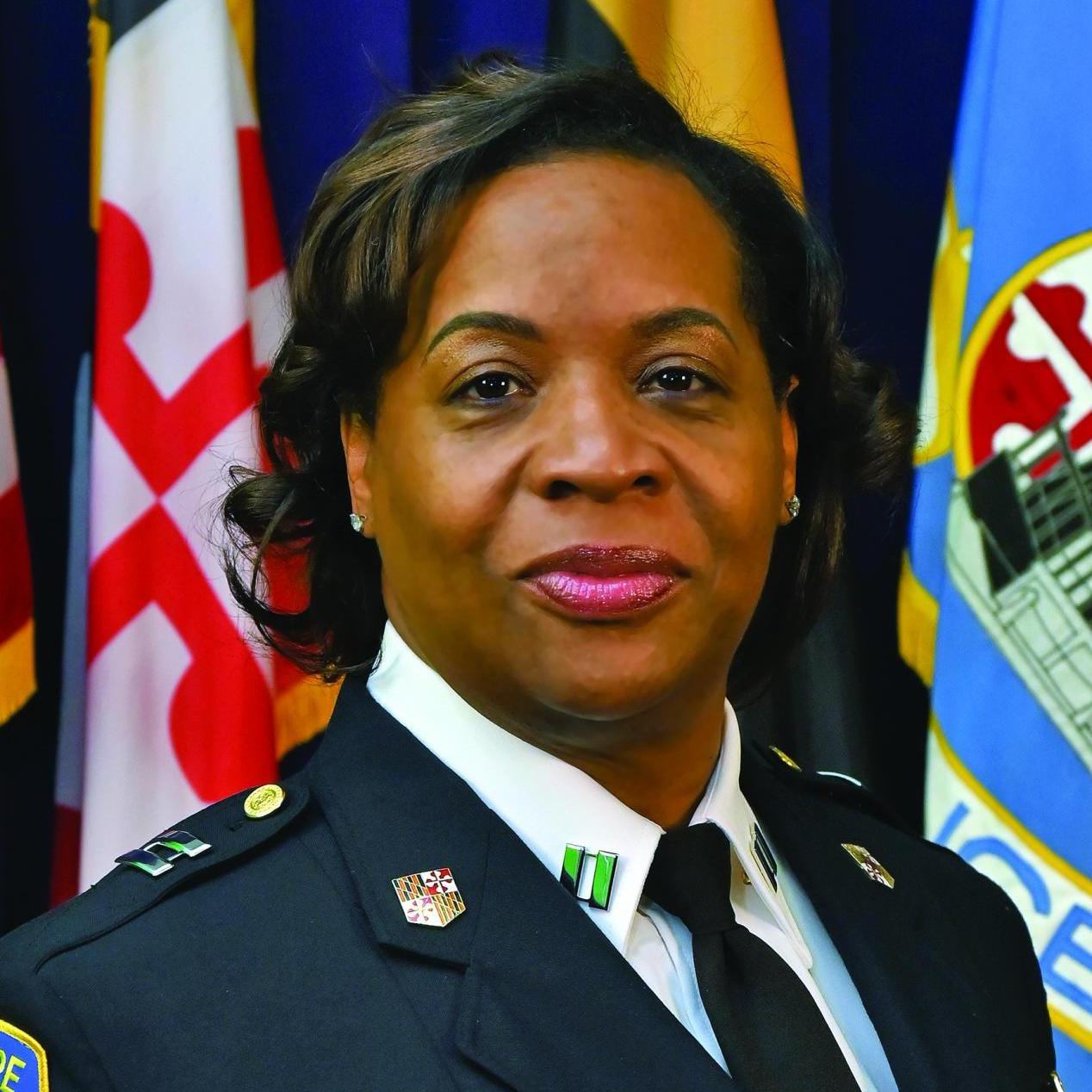
Michael Harrison | Derek Loeffler | Joann Wallace
BALTIMORE CITY POLICE DEPARTMENT
➜ Officers of the Baltimore City Police Department (BPD) interact with people experiencing mental health crises every day. From those who experience homelessness and substance use disorders to typical 911 calls, an officer may never know when a situation might be exacerbated by mental illness.
Through training organized by Behavioral Health System Baltimore and community partners, the BPD is training cadets and seasoned officers on how to better identify individuals in crisis so interactions can end in compassion, not handcuffs.
“Crisis intervention trains officers to deal with a person in crisis in a very different way that now uses de-escalation techniques, time, spatial distance and the tools available to them other than force to get people the care they need, rather than taking them into physical custody and making arrests,” said Baltimore Police Commissioner Michael Harrison.
NAMI Metro facilitates multiple training sessions as part of the mandatory three-day behavioral health training given to all cadets and helped create new curriculum and experiential learning for the specialized Crisis Intervention Training (CIT) provided to officers on a voluntary basis. NAMI Metro expanded its training to 911 operators in 2021 and has trained nearly 2,000 emergency service personnel since 2016. The program includes partnerships between police officers, social workers and community services.
“An officer might be driving down the street and witness someone in crisis, or they may get a call to a home where there’s a potential family disturbance where the family is having trouble with a loved one,” explains Major Derek Loeffler. “The more training we can give [officers] to understand and respond to those situations, the better equipped they are to serve the residents of Baltimore.”
Not only does CIT provide vital information and tools to officers, Captain Joann Wallace explains that officers enjoy the coursework, especially the role-play that concludes the 40-hour training. Officers like Wallace act out scenarios so trainees can test their skills in a controlled environment before taking it to the street. “It’s a lot of fun and interesting and we’re able to give real-time feedback and the officers can ask questions so that when they take this training out on the street it’s become real for them,” she states.
Much of the training gets to the heart of strong community policing, where communication and relationships play an important role in public safety.
“Understanding crisis and responding to it appropriately without force reduces injury to both community and officers,” says Commissioner Harrison. “It also reduces emotional harm and litigation, which in turn builds trust.”
The greatest take away for officers is that regardless of the situation, don’t rush to a judgement or action.
BREAKING the silence
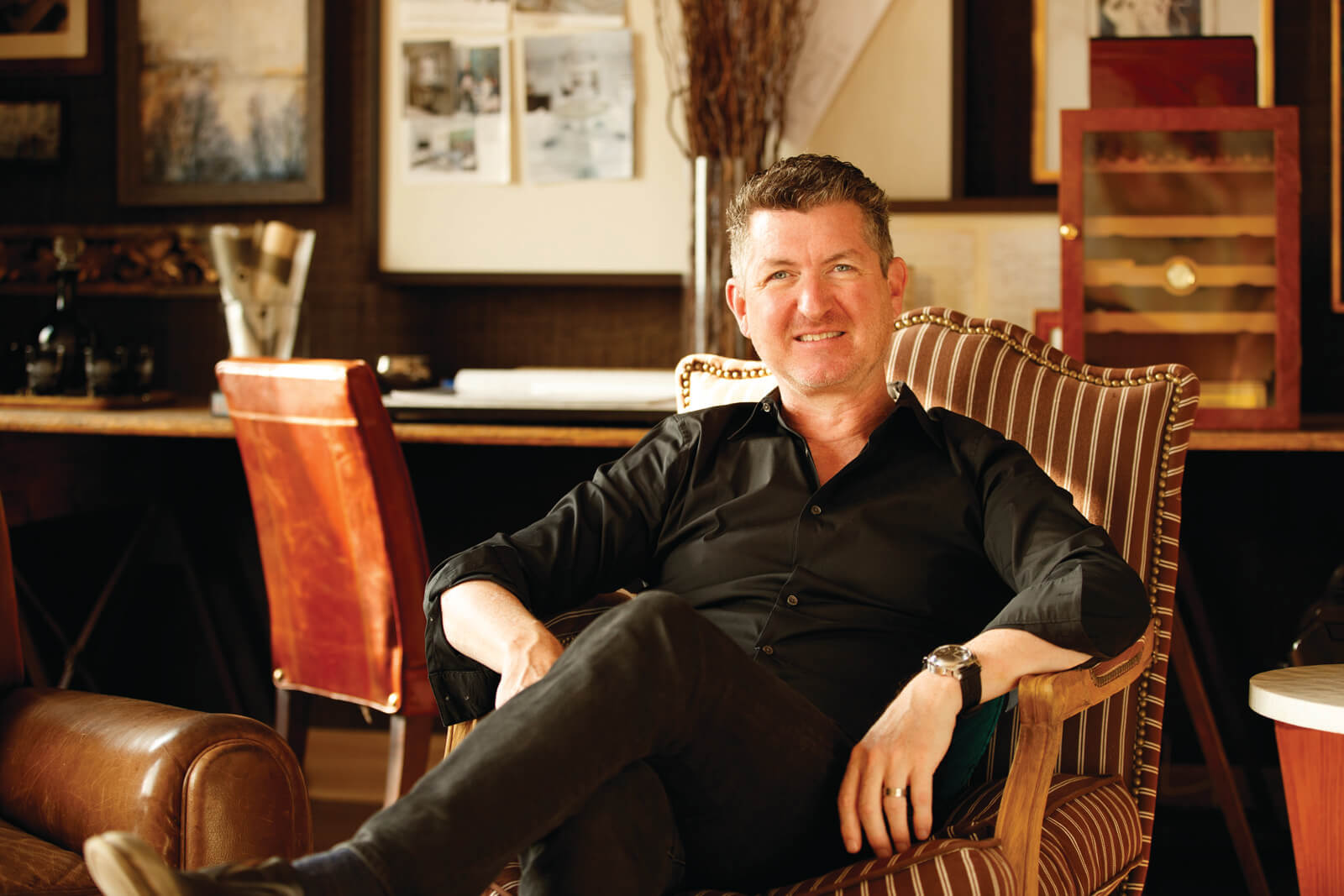
Patrick Sutton
INTERIOR DESIGNER
➜ It’s impossible to miss the artistry of interior designer Patrick Sutton, whose work graces public spaces, restaurants and private homes in Baltimore and around the globe. He recently released his first book, Storied Interiors, about the stories our spaces tell about our lives and our dreams.
Sutton has his own story to tell, one that influenced the person and designer he is now. In her early 20s, Sutton’s mother began acting erratically. This was the early 1970s, a time when mental illness was simply not discussed. His mother was eventually diagnosed with schizophrenia and her condition became a family secret.
“As a little boy, you don’t know what’s going on you just know something is wrong. It was awful for a child such as myself because there was no support network,” says Sutton. “My mom’s illness was swept under the rug when what she needed was care. It was like living with a ticking time bomb.”
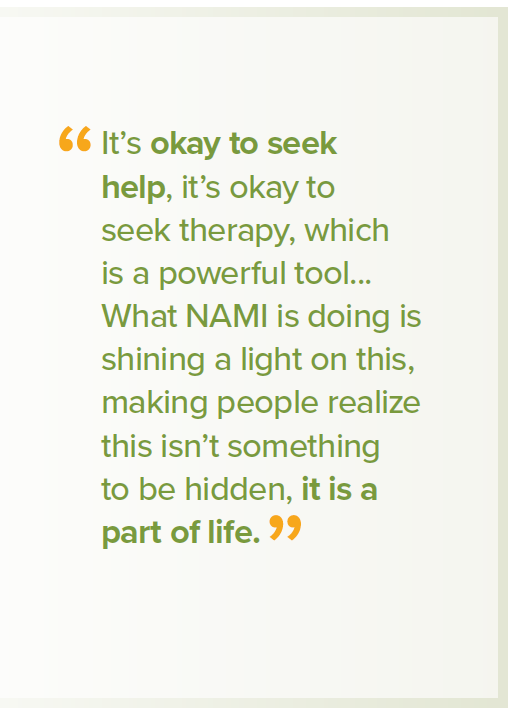 It wasn’t until later in life that Sutton understood the family secret was nothing to be ashamed of. In fact, it defined him as an individual. Lacking an adult role model for “normal” life given his mother’s condition and his father’s absence due to his career as a travel journalist, Sutton grew up being a student of other people, an observer. That skill, and his desire to create beautiful healing environments, informs his work today as a preeminent designer.
It wasn’t until later in life that Sutton understood the family secret was nothing to be ashamed of. In fact, it defined him as an individual. Lacking an adult role model for “normal” life given his mother’s condition and his father’s absence due to his career as a travel journalist, Sutton grew up being a student of other people, an observer. That skill, and his desire to create beautiful healing environments, informs his work today as a preeminent designer.
“Since I couldn’t heal my mother I’m constantly trying to create environments where I can heal others through design,” says Sutton.
When Sutton took his story public he shared his experience in a speech at a Design Leadership Network conference, an international gathering of designers. At that event he offered a candid view of how his mother’s illness shaped his life and design. “Over the next two days people came up to me individually —not just one or two people, but like 25—and shared their stories from their lives,” he recalls. “Sharing what happened to me gave them license to share what happened to them. That’s what awareness does. It gives people the freedom to know they are not alone.”
When Sutton shared his story publicly, an alliance with NAMI Metro came naturally. He explains that NAMI Metro’s mission to remove the stigma from mental illness is dear to him. His hope is that through his outreach others will learn that not only is mental illness nothing to be ashamed of, sharing one’s experience candidly can be empowering.
“It’s okay to seek help, it’s okay to seek therapy, which is a powerful tool,” Sutton concludes. “What NAMI is doing is shining a light on this, making people realize this isn’t something to be hidden, it is a part of life.”
TOGETHER we support each other
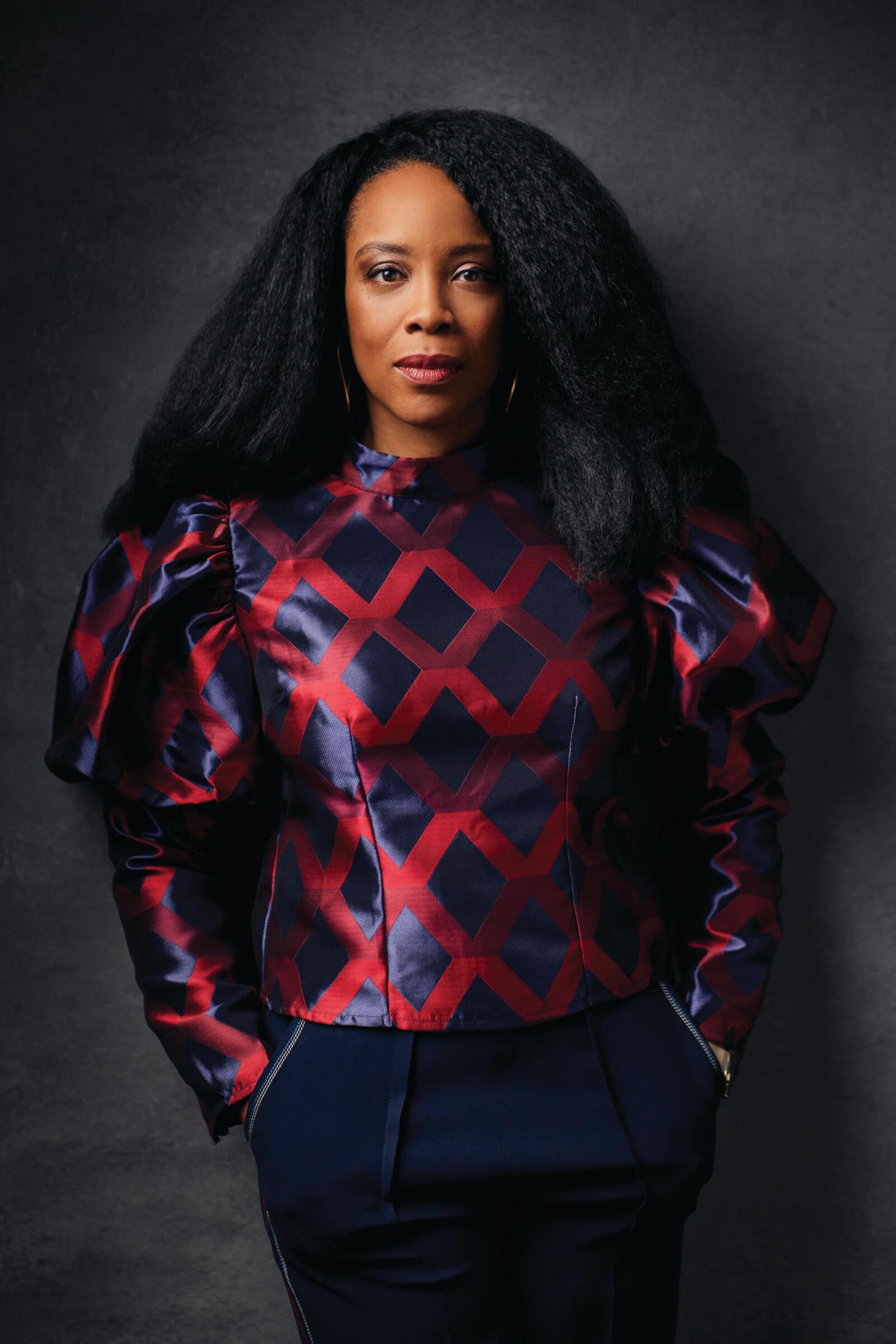
Chief People and Administrative Officer
Under Armour
Tchernavia Rocker
Chief People and Administrative Officer Under Armour
➜ As Chief People and Administrative Officer at Under Armour (UA), Tchernavia Rocker ensures that everyone from retail salespeople to executive leaders have a healthy, positive work life. To support that, UA has all the programmatic pieces in place—an employee assistance program, global mindfulness sessions, and No Meeting Friday afternoons in corporate offices, for example. While tools and programs are necessary, Rocker says creating an environment where conversations about mental health are supported has been an important shift.
“We’re creating an environment where it’s okay to engage and we talk openly about taking away stigma,” she says.
UA’s commitment to mental health is closely tied to its Teammate Resource Groups, small groups created within UA’s larger Diversity Equity and Inclusion strategy. These include Black and Latina employees and parents. UA partnered with NAMI Metro in 2019 to learn how to better support employees. Rocker can still recall the first listening session.
“It was the first safe space conversation we had,” she recalls. “We brought teammates together who, maybe for the first time, were talking about mental health. It was one of the most impactful moments of my professional career because I understood, deeply, what it meant for teammates to have a space where they didn’t need to hide anymore about the challenges they might be having…NAMI helped us facilitate those conversations, creating the runway for us to talk about how we can support psychological safety in the workplace.”
Rocker explains that storytelling and the willingness of leadership to guide from a place of their own vulnerability is critical. Rocker experienced this intimately when her husband died unexpectedly in 2021, understandably sending her life into a tailspin. When she told her boss, rather than just ask what she needed, he reached out to UA’s mental health providers to educate himself on how he could best support her.
“A month later when I returned to work he and I told that story to the workforce, of how I could go to my boss and tell him I was struggling,” she recalls. “By telling our story collectively, it opened up the door for other leaders to tell their stories and it was like freedom just ran through the door after that. It just takes one moment of vulnerability by leaders to create a safe space.”
UA advocates storytelling across its entire brand, supporting not only its employees but also its athletes, from the professional to those in youth sports, to be open about their experiences. The partnership with NAMI Metro helps the organization bring evidence-based expertise to help UA navigate this landscape in a meaningful way.
“Mental health is a broad spectrum including acute traumas and diagnoses that require a level of care,” says Rocker. “It comes down to storytelling and making sure that when people tell their story they feel supported and have the resources available to move forward. The focus has to be on creating the space and place to have these conversations.”

